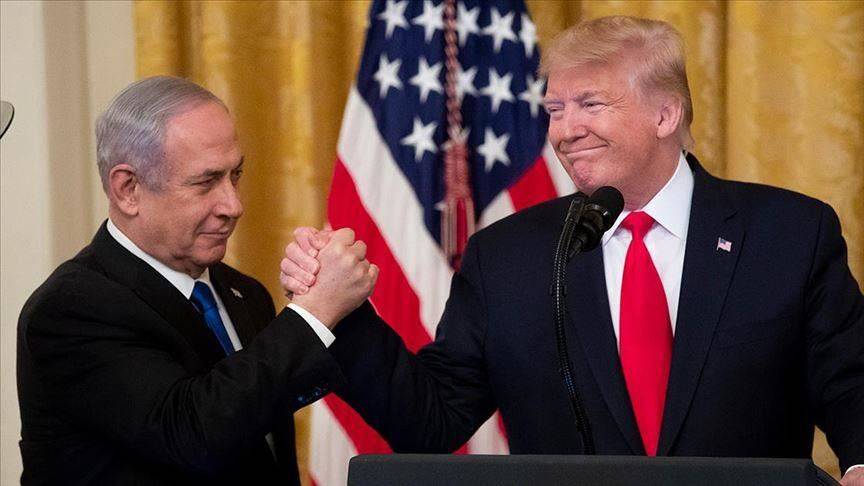2419 Views
Words of Peace, Weapons of War: How America's Two-Faced Gaza Policy Fuels the Conflict
Amid the ongoing humanitarian crisis in Gaza and while the flames of war continue to claim civilian lives, international diplomacy has become more of a stage for political performances than ever before. The two-day visit of U.S. Secretary of State Marco Rubio to Israel on September 14th and 15th, 2025, is a prominent example of a phenomenon that can be termed "performative diplomacy" – an approach where political gestures and media statements replace effective actions to resolve the crisis and, in practice, only contribute to the continuation of the status quo.
This visit, alongside the general policies of the United States government regarding the Gaza war, reveals a profound contradiction between Washington's rhetoric and actions, showing how American support for Israel, under the guise of humanitarian concerns, facilitates war crimes.
Rubio's Propaganda Visit
Marco Rubio's visit to the occupied territories can be considered, above all, a media and electoral maneuver. This trip took place on the eve of the American midterm election season and at the height of partisan rivalries. Rubio, who has always been a staunch supporter of Israel, intended with this move to both strengthen his electoral base among Israel's supporters and to cement a narrative in the global "media war" where Israel is the victim of "terrorism" and its actions have defensive legitimacy.
In his meetings with high-ranking Israeli officials, including the Prime Minister and the Minister of Defense, he not only made no serious mention of an immediate cessation of war or condemnation of the massacre of civilians but emphasized "Israel's legitimate right to defend itself." These statements were issued directly to strengthen Tel Aviv's position and justify its ongoing operations.
His photos alongside Israeli soldiers and visits to border areas resembled a propaganda tour more than a serious diplomatic mission to find a solution. This visit had no tangible positive effect on the course of the war or the improvement of the humanitarian situation and merely became a tool to demonstrate America's unconditional support.
Washington's False Concerns
Simultaneous with these shows of support, White House and State Department officials consistently use phrases such as "deep concern about the humanitarian situation," "the need to protect civilians," and "the necessity of restraint." These statements, which seem designed to placate global and domestic public opinion, have no executive backing. Washington speaks of the need to deliver humanitarian aid while refraining from applying any real pressure on the Israeli regime to fully and permanently open the crossings.
These false concerns create a gray area where America can present itself as a compassionate mediator, while behind the scenes, it is the biggest military and political supporter of the aggressor party. This dual approach allows Israel to continue its policies, confident of impunity, knowing that Washington's rhetoric will never translate into practical action like halting weapons shipments or imposing sanctions.
Facilitating Continued Aggression
A key component of America's performative diplomacy is facilitating the actions of the Israeli regime through military and financial support, as well as the use of the veto at the United Nations. In July 2025, America vetoed, for the seventh time in less than two years, a resolution calling for an immediate and unconditional ceasefire in Gaza.
During Rubio's visit as well, without serious mention of objective conditions for stopping the bombardment or protecting civilians, unequivocal support for the Israeli regime was declared. He emphasized that America would continue to confront Hamas and that there was no fundamental change in this policy. American support practically enables Israel to continue violence, which critics call international crimes, without fear of serious international consequences.
Managing Public Opinion and Pressuring Arabs
Another function of performative diplomacy is controlling the media narrative and managing public opinion, especially in the Arab world. During his visit, Rubio tried to portray himself as a mediator "concerned" about the humanitarian situation, but in practice, he sent messages encouraging Arab governments toward a compromise favorable to Israel. This implicit pressure is exerted through American allies and media to prevent Arab countries from adopting an independent or seriously critical stance.
Furthermore, on the international level, America presents a positive image by emphasizing the need for transparency, supporting humanitarian efforts, and requesting mediation by regional countries, while practically defending the actions of the Zionists. This type of media war is precisely aimed at pressuring Arabs to neither continue public opposition nor engage in serious cooperation to punish the Israeli regime, but rather to maintain the global arrangements that benefit America and Israel.
Conclusion
Marco Rubio's visit to Tel Aviv and America's general policies regarding the Gaza war present a clear picture of a performative diplomacy where words and actions are in obvious contradiction. Washington manages public opinion using false humanitarian concerns, while through military, political, and diplomatic support, it plays a direct role in facilitating war crimes.
This approach not only fails to help resolve the conflict but, by granting impunity to the Israeli regime and pressuring Arabs, fuels continued violence and instability in the region. As long as this fundamental contradiction in American foreign policy remains unresolved, any claim by the United States of striving for peace will be nothing more than a hollow performance to preserve its own strategic interests and those of its main ally in the Middle East – a performance whose cost is paid with the lives of the defenseless people of Gaza.
Translated by Ashraf Hemmati from the original Persian article written by Mohammad Saleh Ghorbani
1 https://www.theguardian.com/world/2025/sep/15/rubio-says-netanyahu-has-full-support-of-us-over-plans-to-destroy-hamas
2 https://www.aljazeera.com/news/2025/9/15/netanyahu-and-rubio-stick-to-established-israeli-us-narrative-on-gaza-war
3 https://www.reuters.com/world/middle-east/us-backed-gaza-aid-group-halt-distribution-wednesday-un-vote-ceasefire-demand-2025-06-04
4https://apnews.com/article/israel-palestinians-hamas-war-news-09-14-2025-665737776ce05e3496af40676a9bc237

Comment
Post a comment for this article